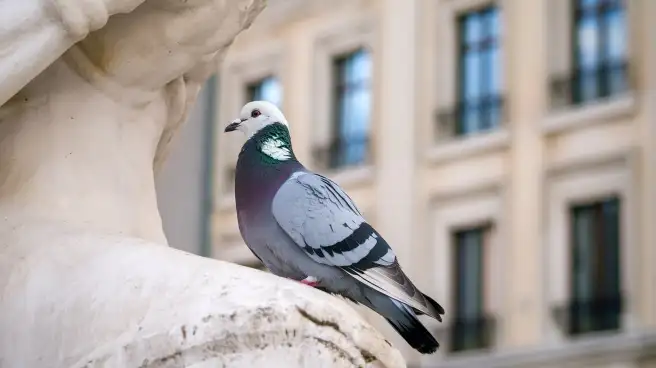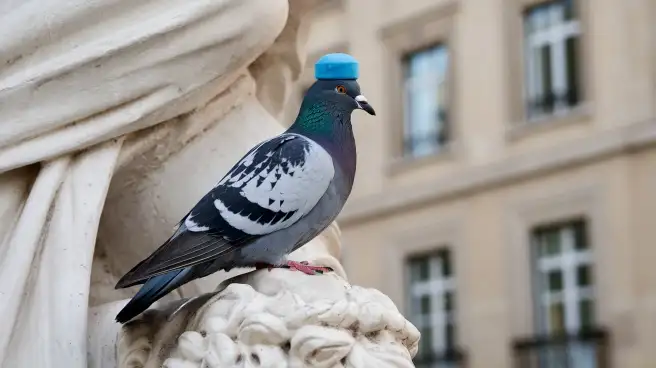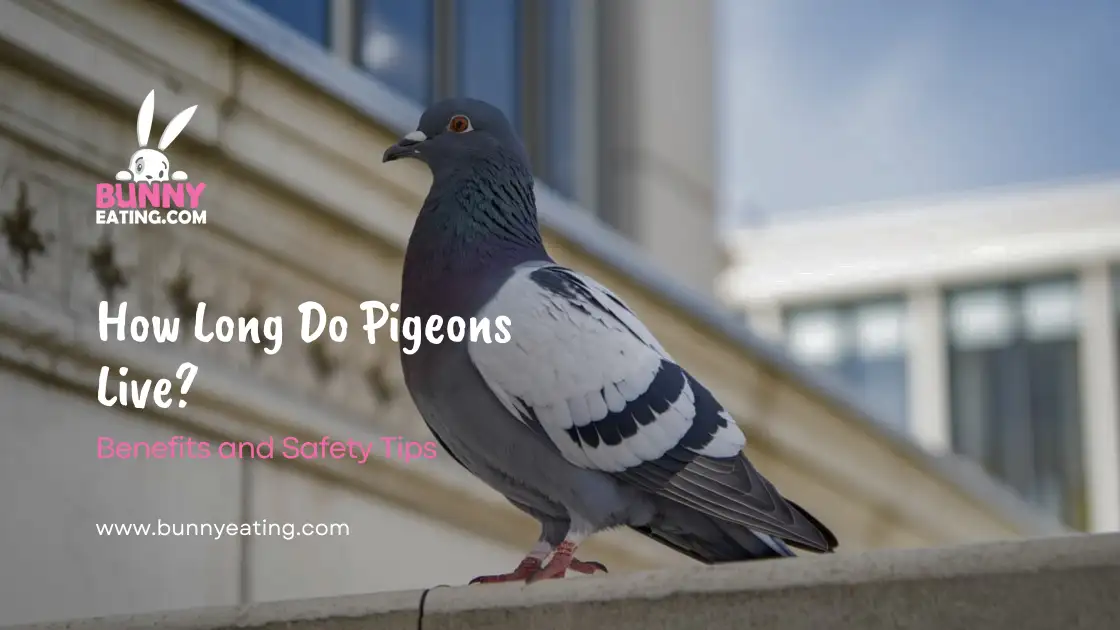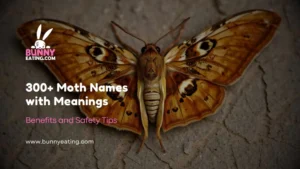Pigeons are common birds found in cities and rural areas. They are known for their cooing sounds and gentle nature. Pigeons live for many years in the right conditions. The lifespan of a pigeon can vary based on its environment and care.
Have you ever wondered about the lifespans of these fascinating birds? Truth be told, it is a revelation! Knowing the life expectancy of the pigeon can shed more light on this avian species. Learn, therefore, how long pigeons live to understand them better. How Long Do Pigeons Live?
Pigeons can live for 3 to 6 years in the wild. In captivity, their lifespan can extend to 15 years or more. Factors like food, shelter, and safety affect their longevity. Understanding their lifespan helps in better care and appreciation.
The Average Lifespan of Pigeons: How Long Do They Live?
When it comes to the question of how long pigeons live, the answer isn’t as straightforward as you might think. Pigeon lifespan can vary widely depending on several factors, including their environment, diet, and whether they’re wild or domesticated. On average, a pigeon can live anywhere from 3 to 6 years in the wild. However, in captivity, with proper care and protection from predators, pigeons can live much longer – sometimes up to 15 years or more!
A variety of elements are responsible for the length of life span observed in pigeons. They are primarily characterized by their availability to food and pure water, being away from enemies thereby prone to hostile conditions and avoiding sicknesses. According to an interesting notion, urban pigeons have a longer life than rural ones due to their access to essential nutrients as well as lower rates of natural predators in cities where they reside. It is for this reason that they adapt to an urban lifestyle that finally supports them to live longer lives in general.
The Life Cycle of Pigeons
The pigeon life cycle is a fascinating journey from egg to adult. It begins when a female pigeon lays one or two eggs in a simple nest. The incubation period lasts about 18 days, with both parents taking turns to sit on the eggs. Once hatched, the young pigeons, called squabs, are completely dependent on their parents for food and warmth.
In the first few days of life, baby pigeons are fed a special substance called “crop milk” made by both their parents. As they grow older, these young birds change to eating regurgitated seeds and other food items brought to them by their parents. By the time they are four weeks old, juvenile pigeons are prepared to leave the nest, yet they may be fed by their parents for another week or even two weeks depending on circumstances. At six months of age, pigeons attain sexual maturity which allows them to start the cycle again through mating and reproduction.
Pigeon Life Cycle
The pigeon life cycle can be broken down into several distinct stages:
- Egg stage (18 days)
- Hatchling stage (0-7 days)
- Squab stage (7-28 days)
- Fledgling stage (28-35 days)
- Juvenile stage (35 days – 6 months)
- Adult stage (6 months onwards)
Each stage presents its challenges and milestones. For example, the mortality rate is highest during the egg and early squab stages, when the young birds are most vulnerable to predators and environmental factors. However, once a pigeon reaches adulthood, its chances of survival increase significantly, especially in urban environments where food is plentiful and predators are scarce.
Types of Pigeons

When we talk about pigeons, it’s important to note that there isn’t just one type. There are over 300 species of pigeons and doves worldwide! However, to discuss lifespan, we’ll focus on the most common types encountered in urban and rural environments.
City pigeons, also known as rock doves or feral pigeons, are the ones most people are familiar with. These are the pigeons you see strutting around city squares and parks, often in large numbers. Wood pigeons, on the other hand, are larger and more commonly found in rural or suburban areas. Let’s take a closer look at these two types and how their lifespans might differ.
City Pigeons
City pigeons are the true urban survivors. These birds have adapted remarkably well to life in human-populated areas, taking advantage of the abundance of food and nesting sites provided by our cities. City pigeons are descendants of domesticated rock doves that were introduced to North America by European settlers. Over time, these birds escaped or were released, forming feral populations that have thrived in urban environments.
Des suppositions diverties sur il est basé sur le concept de l’ors. Par exemple, un pigeon de ville en général vit plus longtemps que ses semblables des campagnes, à cause de l’abondance alimentaire et du peu de prédateurs qui s’y trouvent. Toutefois, des éléments tels que la pollution ou le bruit peuvent réduire sa durée de vie. Ou encore, chaque pigeon urbain peut vivre entre trois et six ans bien que certains aient été observés vivre plus longtemps sous d’autres circonstances.
Wood Pigeons
Wood pigeons, scientifically known as Columba palumbus, are larger than city pigeons and are more commonly found in rural or suburban areas. These birds are native to Europe, North Africa, and western Asia, but have also been introduced to other parts of the world. Wood pigeons are easily recognizable by their distinctive white neck patch and pinkish chest.
The lifespan of wood pigeons tends to be shorter than that of city pigeons, primarily due to increased predation in their natural habitats. On average, a wood pigeon in the wild might live for 2 to 3 years. However, in protected environments or as pets, wood pigeons can live much longer, potentially up to 15 years or more. The key factors influencing their longevity include access to food, protection from predators, and overall health.
How Long Do Pigeons Live?
Now that we’ve covered the basics of pigeon types and life cycles, let’s dive deeper into the specifics of pigeon lifespan. It’s important to note that lifespan can vary greatly depending on the pigeon’s environment and circumstances. We’ll explore how long pigeons live in various situations, from pets to racing pigeons to wild and feral populations.
Understanding these differences can provide valuable insights into the adaptability and resilience of these birds. It also highlights the impact that human interaction and care can have on pigeon longevity. Let’s start by looking at the most current data on pigeon lifespans as of 2024.
How Long Do Pigeons Live In 2024?
As of 2024, our understanding of pigeon lifespan has been enhanced by ongoing research and improved data collection methods. Recent studies have shown that the average lifespan of pigeons in urban environments has slightly increased over the past few decades. This is likely due to a combination of factors, including better adaptation to city life, increased availability of food sources, and fewer natural predators in urban areas.
Current data suggests that the average lifespan of a city pigeon in 2024 is between 4 to 7 years. However, it’s important to note that this is an average, and individual pigeons may live shorter or longer lives depending on their specific circumstances. Factors such as pollution levels, access to clean water, and human intervention (both positive and negative) continue to play significant roles in determining pigeon longevity in urban environments.
How Long Do Pigeons Live as Pets?
When it comes to pet pigeon lifespan, the numbers are quite impressive. Domesticated pigeons kept as pets can live significantly longer than their wild counterparts, often reaching 15 to 20 years of age, and in some exceptional cases, even up to 25 years! This dramatic increase in lifespan is due to several factors, including protection from predators, consistent access to high-quality food and clean water, and regular veterinary care.
Pet pigeons benefit from a controlled environment that minimizes many of the risks faced by wild pigeons. They’re protected from harsh weather conditions, predators, and many diseases that can affect wild populations. Additionally, pet pigeons often receive a more varied and nutritionally balanced diet than wild pigeons, which can contribute to their longevity. However, pet owners must provide proper care, including a spacious living area, regular exercise, and social interaction, to ensure their pet pigeons live long, healthy lives.
How Long Do Racing Pigeons Live?
Racing pigeon lifespan is a topic of particular interest in the world of pigeon fanciers. These birds, specially bred and trained for racing, often have different life expectancies compared to other types of pigeons. On average, racing pigeons can live between 10 to 15 years, with some exceptional birds living even longer.
The length of life in racing pigeons depends on a variety of factors related to their way of life but in some cases, poor living conditions and feeding affect their health adversely leading to shorter lives. For one thing, these birds enjoy great care that encompasses that consists of top-notch food, periodic medical examinations by specialized technicians as well and secure habitats the off-competition period.
However, the rigorous training process and the pressure to win most races do have negative effects on the birds’ welfare which may consequently result in shorter lifetime spans for them. It is interesting to note that some researchers claim that these birds can live longer when they race frequently under normal circumstances possibly because their bodies are kept fit through such activities.

How Long Do Wild Pigeons Live?
Wild pigeon’s lifespan tends to be shorter than that of domesticated or pet pigeons. In the wild, pigeons face numerous challenges that can impact their longevity, including predators, diseases, competition for food and nesting sites, and exposure to harsh weather conditions. On average, wild pigeons typically live between 3 to 6 years.
Nonetheless, remember that this means longevity may fluctuate greatly, given the distinct surroundings. In locations where there’s plenty of food and minimal danger, pigeons in the wild could live longer years; however, those inhabiting less favourable surroundings will most likely survive for a shorter time. Intriguingly enough, certain wild dove species have exhibited lifespans lasting even a decade or longer – thus highlighting how adaptable and resilient they are.
How Long Do Feral Pigeons Live?
Feral pigeon’s lifespan falls somewhere between that of wild and domesticated pigeons. Feral pigeons, which are descendants of escaped domestic pigeons that have readapted to wild living, typically live in urban or suburban environments. Their average lifespan is usually between 3 to 5 years, though some individuals may live longer.
Feral pigeons face many of the same challenges as wild pigeons, including predation and disease. However, they often benefit from the abundance of food sources in urban areas and the relative lack of natural predators. This can contribute to a slightly longer average lifespan compared to truly wild pigeons. That said, feral pigeons also face unique urban dangers, such as traffic, pollution, and human interference, which can impact their longevity.
Biggest Dangers
While pigeons have proven to be remarkably adaptable birds, they still face numerous threats that can significantly impact their lifespan. Understanding these dangers is crucial not only for those interested in pigeon welfare but also for anyone seeking to comprehend the complex relationship between these birds and their urban environments.
From natural predators to human-induced hazards and diseases, pigeons navigate a world full of potential threats. Let’s explore some of the biggest dangers pigeons face and how these factors influence their survival rates and overall lifespan.
What Are the Main Predators of Pigeons?
Pigeons, despite their ubiquity in urban environments, are not at the top of the food chain. They face predation from a variety of animals, both in cities and in more natural habitats. In urban areas, the main predators of pigeons include:
- Peregrine falcons: These swift birds of prey have adapted well to city life and often nest on tall buildings, preying on pigeons.
- Hawks: Various species of hawks, such as Cooper’s hawks and sharp-shinned hawks, hunt pigeons in both urban and rural areas.
- Cats: Both domestic and feral cats pose a significant threat to pigeons, especially to young or sick birds.
- Rats: In urban environments, large rats may prey on pigeon eggs or young squabs.
In more rural or natural settings, pigeons face additional predators such as foxes, raccoons, and owls. The constant threat of predation is one of the main factors contributing to the relatively short lifespan of wild pigeons compared to their domesticated counterparts.
How Do Pigeons Stay Safe?
Despite the numerous threats they face, pigeons have developed several strategies to stay safe and increase their chances of survival. Some of these strategies include:
- Flock behaviour: Pigeons often gather in large flocks, which provides safety in numbers. This makes it harder for predators to single out individual birds.
- Nesting in high places: Pigeons often choose to nest on ledges of tall buildings or in other hard-to-reach places, which helps protect their eggs and young from ground-based predators.
- Vigilance: Pigeons are constantly alert for signs of danger. They have excellent vision and can quickly take flight if they sense a threat.
- Camouflage: While city pigeons might not seem well-camouflaged to our eyes, their grey colouration actually helps them blend in with urban environments, especially when viewed from above by flying predators.
These safety mechanisms, developed over centuries of adaptation, play a crucial role in extending the lifespan of pigeons in both urban and natural environments.

What Diseases Do Pigeons Carry?
While pigeons are often unfairly maligned as “flying rats,” it’s true that they can carry certain diseases. However, it’s important to note that the risk of disease transmission from pigeons to humans is generally low. Some of the diseases associated with pigeons include:
- Histoplasmosis: A fungal infection that can be found in pigeon droppings.
- Cryptococcosis: Another fungal disease that can be present in pigeon droppings.
- Psittacosis: A bacterial infection that can be transmitted from birds to humans.
- Salmonella: Pigeons can carry Salmonella bacteria, which can cause food poisoning in humans.
It’s worth noting that many of these diseases are more of a risk to individuals with weakened immune systems. For healthy individuals, the risk of contracting a disease from casual contact with pigeons is quite low. However, these diseases can significantly impact pigeon populations themselves, potentially shortening lifespans, especially in dense urban environments where diseases can spread more easily.
How to Extend the Life of a Pet Pigeon
For those who keep pigeons as pets, there are several steps you can take to help extend your feathered friend’s lifespan. Proper care and attention can significantly increase a pet pigeon’s chances of living a long, healthy life. Here are some key factors to consider:
Firstly, diet plays a crucial role in extending a pet pigeon’s lifespan. Provide a balanced diet that includes a high-quality pigeon feed mix, supplemented with fresh vegetables and fruits. Avoid feeding bread or other human foods that lack nutritional value for pigeons. Fresh, clean water should always be available.
Secondly, housing is important. Ensure your pet pigeon has a spacious, clean living area that’s protected from extreme temperatures and predators. The enclosure should be large enough for the bird to stretch its wings and fly short distances. Regular cleaning of the living space is essential to prevent the buildup of droppings and bacteria.
Thirdly, regular veterinary check-ups are vital. Find a vet experienced with birds and schedule annual health checks. This can help catch and treat any potential health issues early. Vaccinations against common pigeon diseases can also help extend your pet’s lifespan.
Lastly, don’t forget about mental stimulation and exercise. Pigeons are intelligent birds that benefit from toys, interaction with their owners, and opportunities for flight (in a safe, enclosed area). A happy, stimulated pigeon is more likely to live a longer, healthier life.
Conclusion
Pigeons are living creatures which can span decades. Generally, they live from three to six years out in the wilds but human beings can make them stay alive longer by providing them with safe premises as it were. Most especially some can live more than fifteen years at all whereas if these birds are well taken care of, then only else but for many times as much as their yearly lifespans would be feasible within a single lifetime.
Understanding how long pigeons live helps us take better care of them. Giving them food, shelter, and protection allows them to live healthier lives. Whether in the wild or a safe home, pigeons need our support to reach their full lifespan. Taking the time to learn about their needs shows respect for these special birds.











